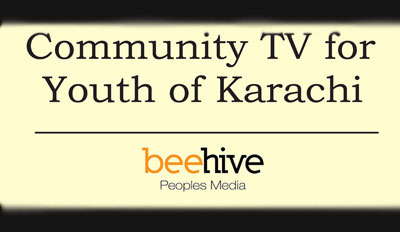Antibiotics: a death sentence?
By Hina Javed
23 April 2016
Every year there is an outbreak of a disease or virus. When families bring their loved ones to the doctor for these illnesses, they automatically expect a prescription for antibiotics. Many do! And, they are surprised, maybe even angry, if they leave the clinic empty-handed. For them, antibiotic is a magic bullet to their ailments. Based on current trends, some infections are becoming almost impossible to treat because of the excessive use of antibiotics, particularly in third world countries. Growing concerns about drug resistance has prompted a global offensive on the overuse of antibiotics. On February 6, The Ministry of National Health Services (NHS) in Pakistan decided to formulate a policy aimed at discouraging the excessive use of antibiotics and focusing on the major reasons which lead to the weakening of the immune system against viruses. In 2013, an official report published by the health sector in Pakistan pointed out that low checks on registration and marketing of drugs were the major reasons for the irrational use of drug. There were around 76,000-88,000 registered products in Pakistan, which was one of the highest in the developing world.Antibiotics, first used in 1940’s, were discovered by Sir Alexander Fleming, a Scottish biologist, in 1928. The discovery of the miracle drug by Fleming began by accident while he was carrying out a research. But, it was ten years later that Howard Florey and Ernst Chain, working at Oxford University, isolated the bacteria killing substance – penicillin – found by Fleming. In 1941, Charles Fletcher, a doctor at a hospital in Oxford, delivered the drug to a patient who was nearing death as a result of the bacteria. The wound made a spectacular recovery and Penicillin was nicknamed “the wonder drug”. With the passage of time and its indiscriminate use, the efficacy of the drug decreased due to the emergence of resistant microorganisms. An official of the Ministry of NHS said, “The viruses have internal intelligence so they change itself according to the medicine and develop resistance against it. In the past, viruses could be killed with low potency medicines but now for the same virus high potency medicines are required.”
All developed countries now have a strict control in prescription and use of antibiotics, but they are indiscriminately used in most of the developing countries. Antibiotics are easily available over the counter in Pakistan. Doctors use them without proper indication and in some instances multiple antibiotics are prescribed to patients without rational clinical justification. Irrational drug use is still rampant despite the fact that Pakistan was one of the first countries to introduce the World Health Organization’s (WHO) essential medicines programme. “The problems have become manifold during the last two decades due to excessive use of antibiotics in the third-world countries,” the official added. Furthermore, the same report published in 2013 states that at least 51 per cent of ailments medicines are purchased over the counter through self-prescription. There is little restriction over the type of medication that can be purchased and the quality of drug stores is poor.
However, one of the more pressing problems that have become increasingly entrenched overtime is the general lack of awareness of medical matters, even amongst the educated. Potent drugs such as antibiotics, psychotropic, narcotics and hormones are frequently misused due to inappropriate prescription by quacks, also known as faith healers, who mostly operate in the rural areas of Sindh. A report published by the Pakistan Medical Association claimed that there were more than 600,000 quacks operating across the country, of which most were in Karachi. Despite the skepticism from health professionals, faith healers are largely accepted here for the benefits they confer upon patients, such as, low cost treatments, ease of accessibility, and social acceptability. Unfortunately, there is no legal mechanism through which authorities could take action against fake doctors.
The popularity of faith healers stems from rural Pakistan where medicine is a relatively unexplored field, but the urban wealthy also turn to these faith healers in huge numbers. “For the wealthy and poor, it is a belief that is passed down through generations, or it is the last resort,” says Dr Sadia Mazhar, a psychologist at Karwan-e-Hayat.
While authorities are taking preventative action to preserve the effectiveness of antibiotics and to slow potential infections through better health policies, the overuse of antibiotics continues to have severe health consequences for Pakistan and around the world. An unfortunate future could be on the horizon if complications keep escalating; a future which rips one of the greatest tools of medicine out of the hands of doctors.








